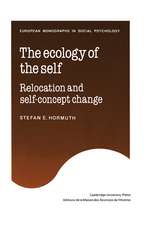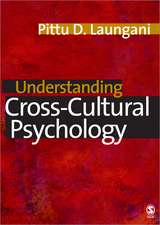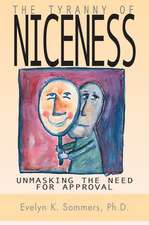Cultural-Existential Psychology: The Role of Culture in Suffering and Threat
Autor Daniel Sullivanen Limba Engleză Paperback – 3 ian 2018
| Toate formatele și edițiile | Preț | Express |
|---|---|---|
| Paperback (1) | 286.51 lei 6-8 săpt. | |
| Cambridge University Press – 3 ian 2018 | 286.51 lei 6-8 săpt. | |
| Hardback (1) | 727.26 lei 6-8 săpt. | |
| Cambridge University Press – 5 apr 2016 | 727.26 lei 6-8 săpt. |
Preț: 286.51 lei
Nou
Puncte Express: 430
Preț estimativ în valută:
54.83€ • 56.92$ • 45.72£
54.83€ • 56.92$ • 45.72£
Carte tipărită la comandă
Livrare economică 24 martie-07 aprilie
Preluare comenzi: 021 569.72.76
Specificații
ISBN-13: 9781107480711
ISBN-10: 110748071X
Pagini: 313
Ilustrații: 9 b/w illus. 7 tables
Dimensiuni: 152 x 228 x 17 mm
Greutate: 0.42 kg
Editura: Cambridge University Press
Colecția Cambridge University Press
Locul publicării:New York, United States
ISBN-10: 110748071X
Pagini: 313
Ilustrații: 9 b/w illus. 7 tables
Dimensiuni: 152 x 228 x 17 mm
Greutate: 0.42 kg
Editura: Cambridge University Press
Colecția Cambridge University Press
Locul publicării:New York, United States
Cuprins
Preface; Part I. Theory: 1. Theoretical roots of cultural-existential psychology; 2. Fundamental principles of cultural-existential psychology; 3. A model of existential threat; 4. Cultural variation as patterns of social orientation and control; 5. Cultural threat orientations: disorientation-avoidance and despair-avoidance; Part II. Research: 6. Modernization and changes in attitudes toward suffering among Kansas Mennonites; 7. Cultural threat orientations among traditionalist Mennonites, Unitarian Universalists, and college students; 8. Transcendence versus redemption in the experience of a natural disaster; Part III. Implications: 9. Cultural-existential psychology and contemporary society; Appendix A. Guide to key abbreviations and terms; Appendix B. Data analyses, Chapter 6; Appendix C. Methodology and questionnaire items, Chapter 7; Appendix D. Data analyses, Chapter 7.
Recenzii
'With this book, we welcome in an exciting new field of cultural-existential psychology that is not only deeply theoretical but supported by innovative research by the author. It should be of broad interest across disciplines and is a must-read for any scholar or practitioner interested in the study of culture.' Michele Gelfand, University of Maryland
'We would describe Sullivan's efforts as highly ambitious and insightful. Due to the salience that American politics and the associated culture clash have recently enjoyed, there is a possibility that we are, in part, prisoners of the moment, but we think not. Sullivan is clearly on to something in his attempt to bring an appreciation of culture and cultural differences to the study of the ways in which individuals deal with suffering and threat. For the betterment of psychological science as well as our own conscience, we hope that he continues to integrate these important areas of research.' William L. Dunlop and Calen Horton, PsycCRITIQUES
'We would describe Sullivan's efforts as highly ambitious and insightful. Due to the salience that American politics and the associated culture clash have recently enjoyed, there is a possibility that we are, in part, prisoners of the moment, but we think not. Sullivan is clearly on to something in his attempt to bring an appreciation of culture and cultural differences to the study of the ways in which individuals deal with suffering and threat. For the betterment of psychological science as well as our own conscience, we hope that he continues to integrate these important areas of research.' William L. Dunlop and Calen Horton, PsycCRITIQUES
Notă biografică
Descriere
Bridging cultural and experimental existential psychology, this book offers a synthetic understanding of how culture shapes psychological threat.
















